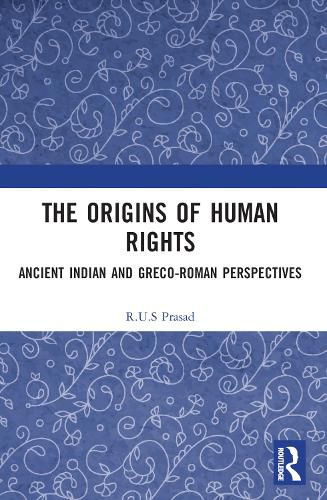Readings Newsletter
Become a Readings Member to make your shopping experience even easier.
Sign in or sign up for free!
You’re not far away from qualifying for FREE standard shipping within Australia
You’ve qualified for FREE standard shipping within Australia
The cart is loading…






This book studies the history of intercultural human rights. It examines the foundational elements of human rights in the East and the West and provides a comparative analysis of the independent streams of thought originating from the two different geographic spaces. It traces the genesis of the idea of human rights back to ancient Indian and Greco-Roman texts, especially concepts such as the Rigvedic universal moral law, the Upanishadic narratives, the Romans' model of governance, the rule of law, and administration of justice. It also looks at Cicero's concept of rights and duties which focuses on quality of compassion and fair play, and Seneca's expositions on mercy, empathy, justice, and checks on the arbitrary exercise of power.
An important contribution, this book fills a significant gap in the study of human rights. It will be useful for students and researchers of political science, ancient history, religion and civilizations, philosophy, history, human rights, governance, law, sociology, and South Asian studies. The book also caters to general readers interested in the history of human rights.
$9.00 standard shipping within Australia
FREE standard shipping within Australia for orders over $100.00
Express & International shipping calculated at checkout
This book studies the history of intercultural human rights. It examines the foundational elements of human rights in the East and the West and provides a comparative analysis of the independent streams of thought originating from the two different geographic spaces. It traces the genesis of the idea of human rights back to ancient Indian and Greco-Roman texts, especially concepts such as the Rigvedic universal moral law, the Upanishadic narratives, the Romans' model of governance, the rule of law, and administration of justice. It also looks at Cicero's concept of rights and duties which focuses on quality of compassion and fair play, and Seneca's expositions on mercy, empathy, justice, and checks on the arbitrary exercise of power.
An important contribution, this book fills a significant gap in the study of human rights. It will be useful for students and researchers of political science, ancient history, religion and civilizations, philosophy, history, human rights, governance, law, sociology, and South Asian studies. The book also caters to general readers interested in the history of human rights.